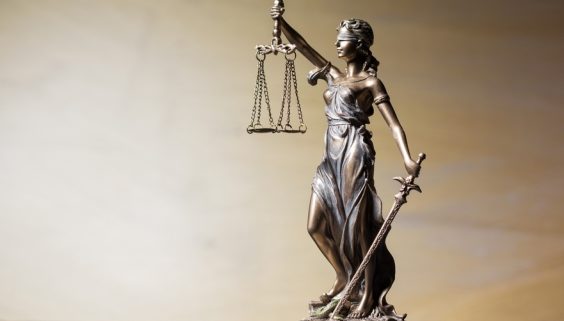This article has been written by Team LawSikho.
Table of Contents
Uttarakhand Judicial Service Exam 2020-21
Law Graduates who wish to become members of subordinate judiciary should write the entry-level exam which is the Judiciary exam or the PCS (J)-Provincial Civil Service-Judicial Examination.
This exam is uniformly divided into 3 stages of Preliminary, Mains and Interview, across all States in India.
The State government under the supervision of respective High Courts appoints members of the subordinate judiciary.
The selection process is further dependent on the yearly vacancies/number of seats.
Judicial services offer several attractive features which include handsome perks and privileges including among others- rent-free accommodation, fuel allowances, subsidized electricity and water supplies, telephone allowances, and bursaries for children’s education.
Eligibility
(i) A citizen of India or such a person of other nationality as declared eligible by Government of India;
(ii) Bachelor of law from a University established by law in Uttarakhand or by other University of India recognized for this purpose by the Governor. (I.e. The candidate must have completed an LLB from a BCI recognized Law College in India and be eligible to practice as an advocate in India);
(iii) Candidate must possess a thorough knowledge of Hindi in Devnagri script. (Reading, Written and Spoken) and Basic knowledge of Computer Operation;
(iv) Age Limit 22-35 Years
Syllabus
For Preliminary written Entrance (Screening) Examination
The preliminary written entrance examination paper will be divided into two parts.
Part-I will contain 50 marks and
Part-II will contain 150 marks. There will be an objective type test on the following subjects:-
Part-I :- General Knowledge. It will include day to day happenings around India and the World, particularly in the legal spheres. The questions may relate mainly to international law, neutrality, recent legislation pronouncement particularly Indian Constitution, law and development and legal aspects but it will not be confined to this only.
Part-II :- It will cover the following Acts and Laws – Transfer of Properties Act, Principle of Hindu Laws and Principle of Muslim Laws, Evidence Act, Code of Criminal Procedure, Indian Penal Code, Civil Procedure Code.
For the Main Written Examination and Viva-voce Examination (Interview):
The examination will include the following subjects; each subject will carry the number of the mark shown against it:
Subject Mark 1-
1- The Present Day 150 marks
2- Language 100 marks
3- Law: Paper I – Substantive Law 200 marks
4- Law: Paper II – Evidence & Procedure 200 marks
5- Law: Paper III – Revenue & Criminal 200 marks
6- Viva-Voce 100 marks
(1) The Present Day – This paper is designed to test the candidate’s knowledge of the reactions to what is happening in India and the world generally at the present day, particularly in the legal sphere and also his power of expression in English. Questions, the answers to which should be in essay form will relate mainly to jurisprudence, international law, neutrality, recent legislation, particularly- Indian constitutional law and developments, especially on their legal aspect and so on but will not be confined to them. Credit will be given both for substance and expression; conversely deduction will be made for bad expression, including faults of grammar, misuse of words etc.
(2) Language – A passage in English will be set and the candidate will be required to translate it into the ordinary language spoken in the courts, using the Devnagri Script ——— Marks 30
Likewise a passage of Hindi will be required to be translated into ordinary English language. ——— Marks 30
There will be English Précis writing also. ——— Marks 40
(3) Law: Paper I-Substantive Law – The questions set will be restricted to the field covered byThe law of contracts; the law of partnership; the law concerning casements and torts; the law relating to the transfer of property; including the principles of equity especially applicable thereto; the principles of equity, with special reference to the Law of Trust and specific relief. Hindu Law and Mohammedan Law.
(4) Law: Paper II – Evidence and Procedure – The field will be covered by the Law of Evidence, The Criminal Procedure Code and Code of Civil Procedure, including the principles of pleading. The questions set will relate mainly to practical matters; such as the framing of charges and issues, the methods of dealing with the evidence of witness, the writing of judgment and the conduct of cases generally but will not be restricted to them.
(5) Law: Paper III- Revenue & Criminal – U.P. Zamindari Abolition and Land Reforms Act (as applicable in Uttarakhand) and Indian Penal Code.
(6) Viva-Voce- The suitability of the candidate for employment in the Judicial Service will be tested with reference to his record at School, College and University and his personality, address and physique. The questions which may be put to him may be of a general nature and will not necessarily be of an academic or legal nature.
(C) For Basic Knowledge of computer Operation Practical Examination: Microsoft Windows Operating system and Microsoft Office (Maximum Marks – 100; Minimum Qualifying Marks to be obtained – 40; Time allowed: One Hour) The paper shall be set from the given syllabus broadly taking one question from each i.e. – (1) Windows and internet. (2) M.S. – word. (3) M.S. – Access. (4) M.S. – Excel and (5) M.S. – PowerPoint. Each question shall have five actions to be performed on the system each having four marks. Printout of the output shall be taken and given for evaluation.
If you are interested in creating a foolproof strategy for your judiciary preparation, sign up for a judiciary preparation workshop that we are conducting on 14th December for more insights.
For more insights and updates about the judiciary exam, join our Whatsapp group here.
Source
https://ukpsc.gov.in/files/Syllabus_for_PCS_(J).pdf
LawSikho has created a telegram group for exchanging legal knowledge, referrals and various opportunities. You can click on this link and join:
 Serato DJ Crack 2025Serato DJ PRO Crack
Serato DJ Crack 2025Serato DJ PRO Crack











 Allow notifications
Allow notifications


